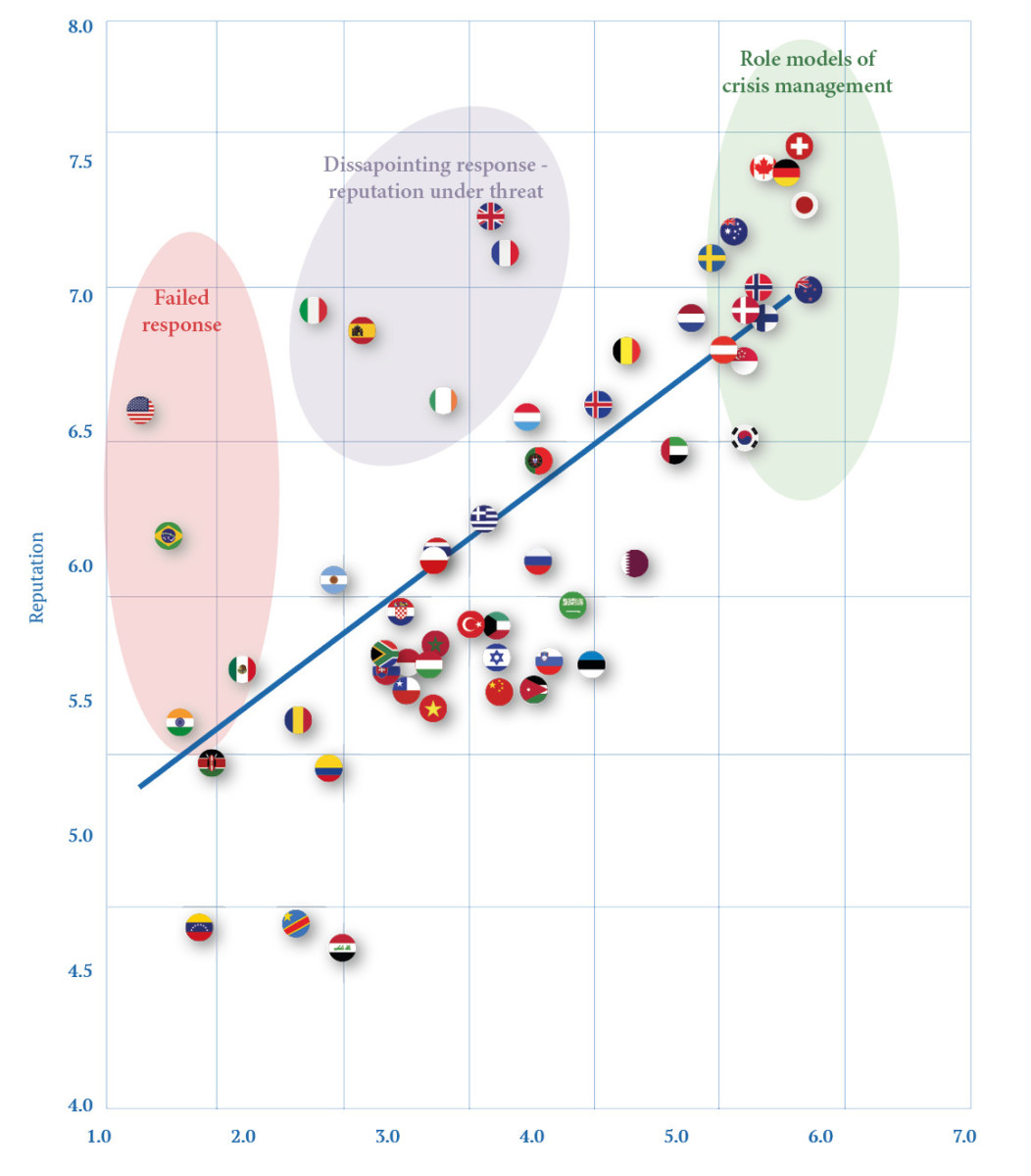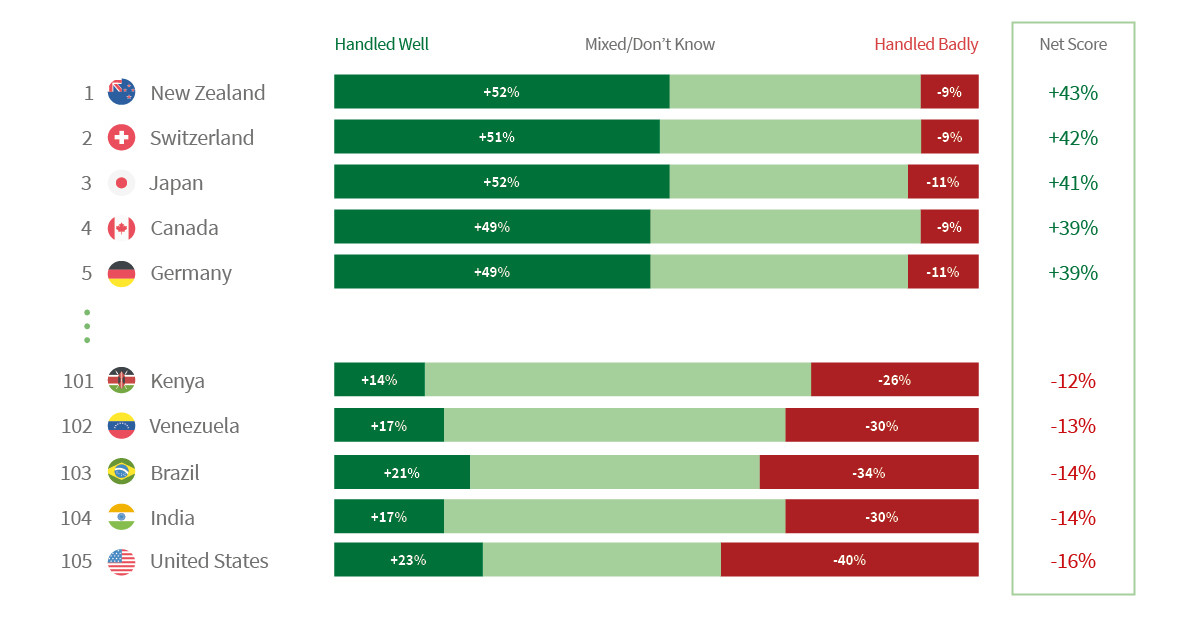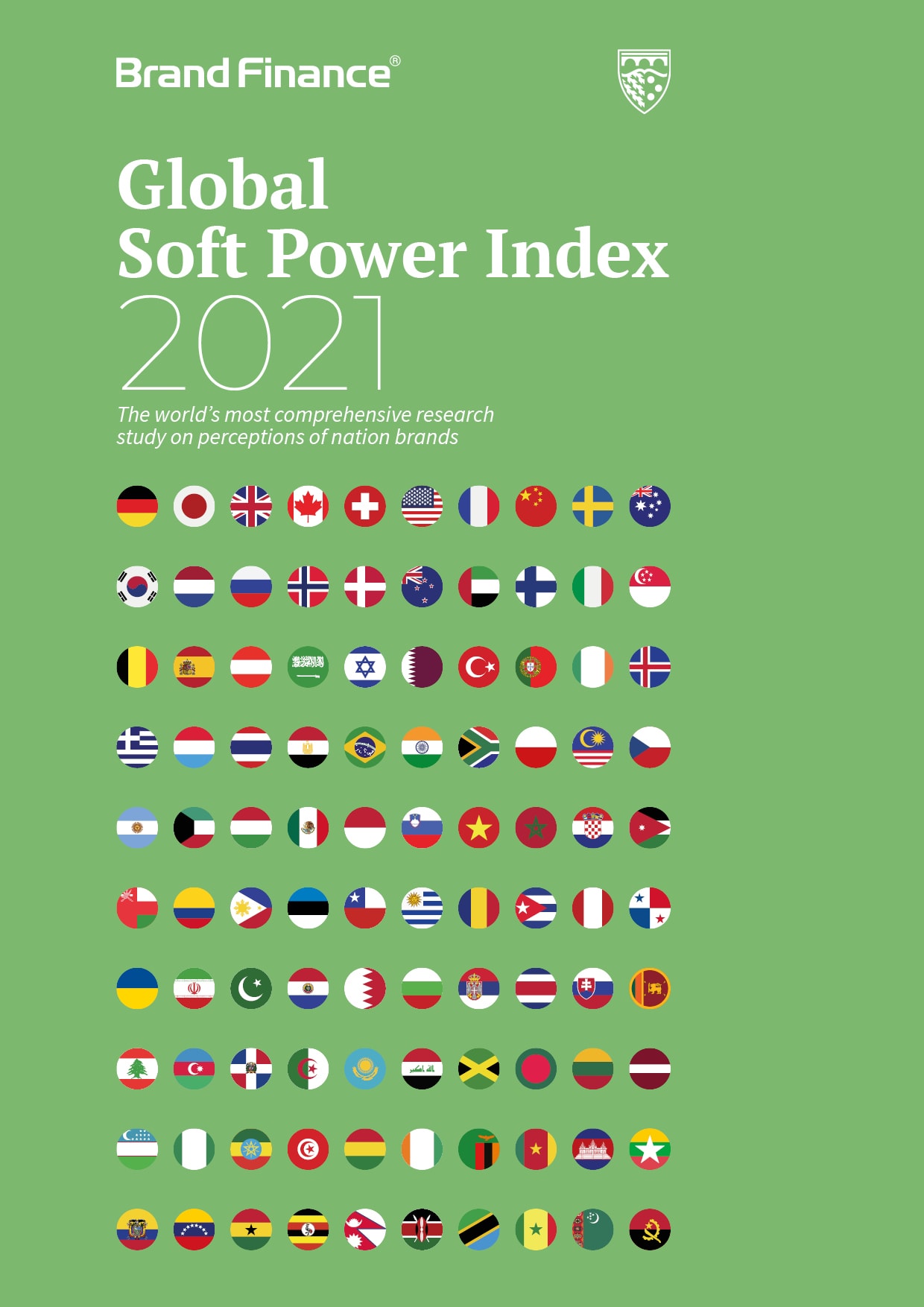This year's Global Soft Power Index includes a new metric where respondents were asked to rate how they perceived nations’ handling of the COVID-19 pandemic. Respondents were asked to rate each nation’s efforts in terms of stimulating the economy, protecting the health and wellbeing of citizens, and cooperating on the international stage and providing aid.
New Zealand versus the United States
Hailed as a global success story in the combat of COVID-19, New Zealand has been rated by the general public as the country that best handled the pandemic, with a net score of +43%. The net score is the difference between ‘handled it well’ and ‘handled it badly’ responses across the three measures (economy, health & wellbeing, and international aid & cooperation). Prime Minister Jacinda Ardern’s swift response and clarity of communication in handling the crisis has been widely praised by the media and recognised by people the world over.

At the other end of the spectrum, ranking bottom among nations globally, and dropping out the ranking to 105th, is the United States with a regretful net score of -16%. Former President Trump’s response to the pandemic caused controversy both at home and abroad, with Trump repeatedly refusing to acknowledge and act on the severity of the situation. With the most cases and COVID-19-related deaths globally, the world’s largest and strongest economy has encountered harsh criticism and questioning on the global stage.
The stark contrast between the public’s perceptions of how New Zealand and the US handled the pandemic, epitomises the two nations’ contrasting visions of the world, spearheaded by almost polar-opposite leaders. On the one hand, we have Ardern’s open, liberal, and compassionate policies versus Trump’s often combative, protectionist, and isolationist approach. As President Biden takes the reins of power, all eyes will be on him to kickstart recovery across the nation.
Disappointing performances with reputations under threat
Other Western powerhouses’ weaknesses have also been displayed for the world to see during the pandemic, and their failings have not gone unnoticed by respondents.
The United Kingdom (34th), Spain (81st), and Italy (94th) all rank particularly low and record low net scores. The UK has struggled to negotiate the ongoing repercussions from the pandemic, including the fallout from the sharpest economic contraction on record – 20.4% in April last year, leaving the nation in a state of turmoil. The UK, Spain, and Italy are currently within the top 10 highest mortality rates per 100,000 in the world, with the UK recording the highest mortality rates per 100,000 among the three at 173.06.

Role models of crisis management?
Many affluent nations with a strong reputation of being well-run, have emerged as apparent role models in crisis management, often regardless of their approaches to handling the pandemic. Strong net scores were noted by nations such as Japan (2nd), Switzerland (3rd), Canada (5th), Norway (6th), Finland (7th), Denmark (8th), South Korea (9th), Singapore (10th), Australia (11th), Austria (12th), and Sweden (13th).
Sweden – a nation that was particularly controversial in its COVID-19 response, snubbing the lockdown consensus and imposing comparatively relaxed restrictions and policies in pursuit of herd immunity – has a troubling 121.04 deaths per 100,000. However, the general public and specialist audiences both rank Sweden a high 13th globally for its handling of the pandemic across all three measures.
Japan has defied the odds of many that expected the nation to be one of the worst-hit at the beginning of the COVID-19 outbreak – due to its proximity to China, its densely populated cities, and burgeoning elderly population. But it has emerged as relatively successful, with lower Coronavirus cases and deaths and with its economy faring better.
Lack of familiarity hinders nations
At the same time, many other nations do not receive enough credit for their efforts where credit is clearly due. Vietnam’s net score is just +8% and is ranked 59th, despite recording staggeringly low COVID-19 cases and deaths. The story is the same for Slovakia (ranked 70th) with a net score of only +5%, but with far fewer cases than its European counterparts and a successful mass asymptomatic testing programme, which countries like the UK are hoping to replicate, the nation nonetheless falls far lower down the ranking than expected.
“The results demonstrate that in order for nations to establish positive perceptions of their actions, there are many more factors at play than successful implementation of their policies. As shown, reputation plays a vital role, as does familiarity. Nations with high reputations are often given extra credit by the general public, while those receiving low media attention have notably underperformed.”
Germany’s success recognised by specialist audiences
According to the specialist audiences, it was Germany that has come out on top as the country that has handled COVID-19 best, with a net score of +71%. New Zealand was ranked 3rd by specialist audiences with a net positive score of 57%. Compared to the general public, the specialist audiences have understood and recognised the greater challenge that Germany has faced throughout the pandemic, as a nation with a much larger population and shared borders with several other nations, unlike New Zealand.

China most complimentary of WHO’s handling of COVID-19
One further question was added to the Global Soft Power Index survey asking how respondents perceived the World Health Organisation’s handling of the crisis. Overall, 31% of respondents believe WHO ‘handled it well’, compared to 20% who believed it was ‘handled badly’.
Chinese respondents were the most complimentary of WHO’s handling of the crisis, with a net positive response of +53% of respondents saying the organisation ‘handled it well’. At the other end of the spectrum, Japanese respondents were the least complimentary, with a net negative response of -51% of respondents saying the organisation ‘handled it badly’.
Interestingly, there were mixed reviews across the US, which notably withdrew from WHO this year. 35% of US respondents said WHO ‘handled it well’, 26% ‘handled it badly’ and 33% answered ‘mixed’.

